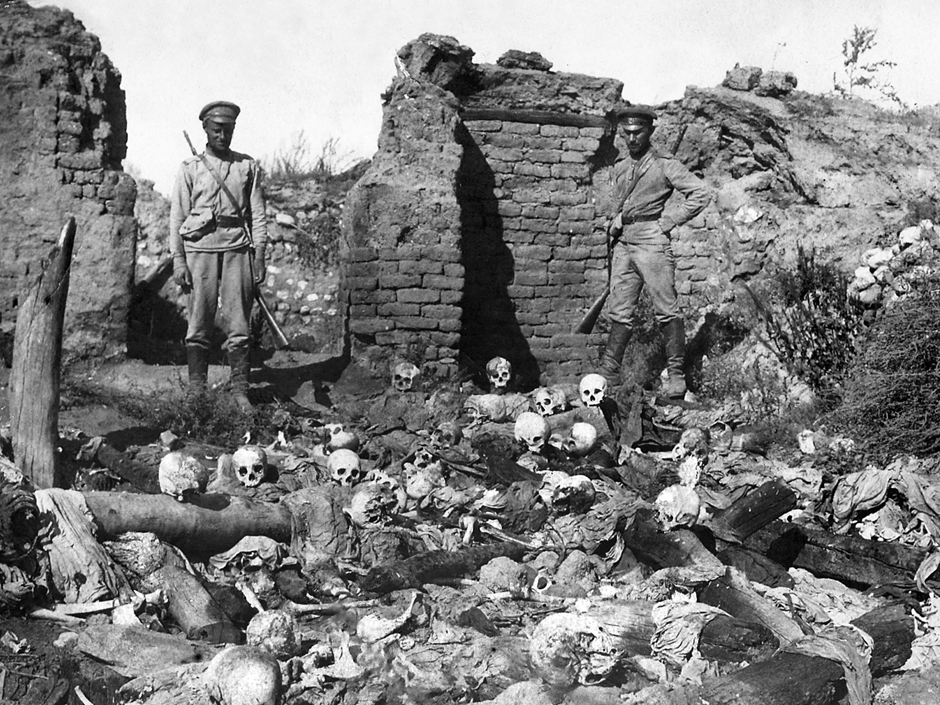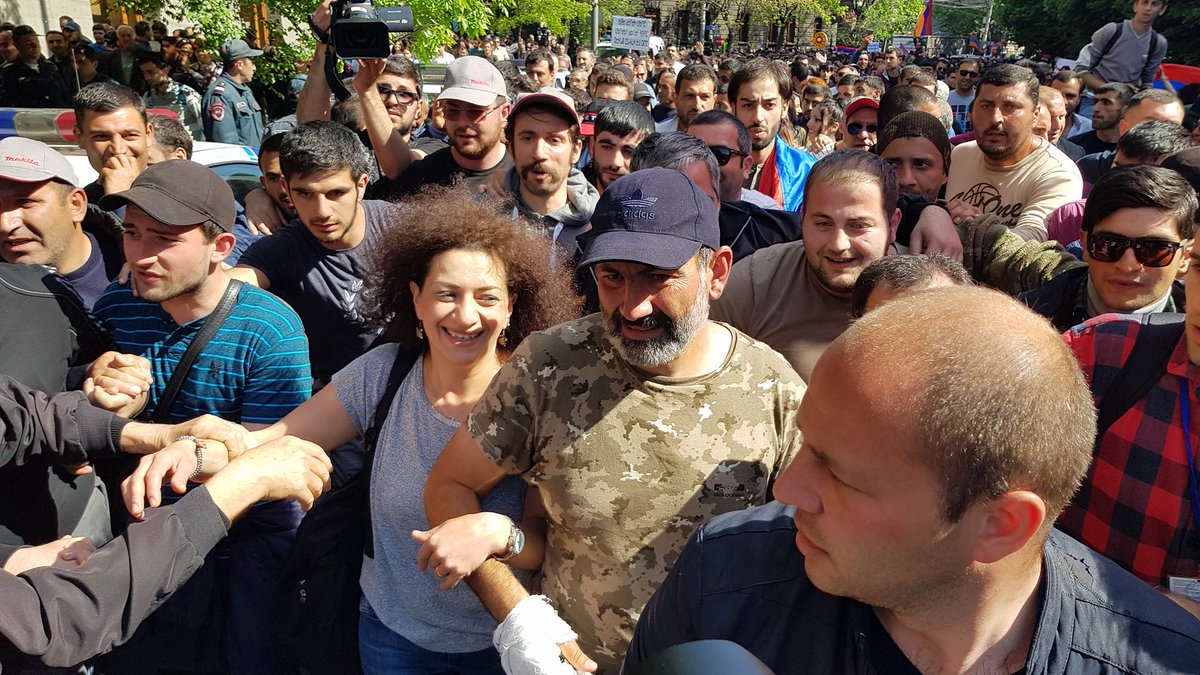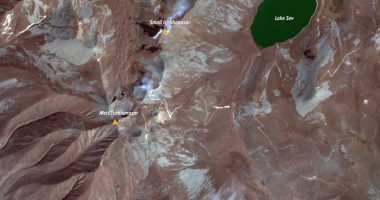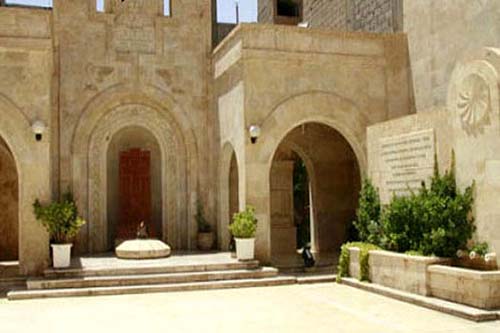In 1915 the Armenian Genocide Occurred. Three Years Later, on May 28th Armenia Declared Its Independence.
Today is April 20th, a few days away from the day of Armenian Genocide Commemoration. It should be a momentous occasion for the Armenian people. But it is bittersweet. Only a third of Armenians live in their homeland, the result of genocide-induced diaspora. As such, millions of Armenians around the globe watch or read the news with baited breath, hoping that political tensions will subside in the capital of Yerevan and surrounding cities. Tens of thousands of protesters are rallying against their government, obstructed by police forces who threaten their liberty. They are disgruntled. In their view, the constitution was changed only to perpetuate the current leadership. Whether or not those in charge are best suited for the job is not of importance. Perception is key. The bottom line is that there is no change in leadership, and the country has lost one-third of its population since its independence from the Soviets 26 years ago.
According to popular opinion, Armenians consider that the current regime is autocratic. They also feel that recent political changes have an unconstitutional tone. A history of oppression will undoubtedly repeat itself if Armenians do not continue to take a stand against what they perceive to be unjust, from whatever source it originates—Soviets, Turks, or its own government. For independence to be infringed upon by one’s own government, rather than an invader, is even more demoralizing.
During its 26 years as an independent nation, the facts show that Armenia has been successful in protecting its borders and securing its defense (despite the Artsakh war, the 1988 earthquake, and the economic challenges resulting from the collapse of the Soviet market). But, the ingredients to establish a flourishing populace are not present. Access to employment, justice, and government accountability are imperceptible, according to most present-day Armenians. This is especially true when World Bank statistics suggest that 75% of Armenians make less than five dollars a day. One wonders if the Armenians’ current motivation to participate in military defense of their country is based on a nationalistic identity—an identity resulting from a psychological need for self-defense as a response to the historical experience of the victimization of genocide and other invasions. Nationalism, however, can only take a people so far.
Salt is poured on the wound when the Armenian populace—who are struggling with a low income—see that those who live in that lap of luxury are also the ones who are related to the regime or the class of oligarchs. While the few are living lavishly, the children of that same disgruntled populace are sent to the trenches to defend their country. They do so in the name of freedom and justice, but also to secure the lifestyles of the few they despise.
We will soon be celebrating the 100th anniversary of Armenia’s independence. Perhaps we should revisit what it means to be independent as a nation. As a people. As individuals. In the truest sense of the word, independence should provide equal opportunity—morally, socially, economically, and/or gender-based—so that we may all have equal standing as citizens, be able to contribute to the wellbeing of the nation, and in the process attain self-determination.
This is the ideal time to question ourselves during the occasion of these two significant dates in our history, which have impacted our lives more than anything else—April 24th and May 28th. Are our people truly independent in the sense described above? Is there an equitable social contract between the government and its people? And what is the impact of that social contract on Armenians around the world and on diaspora-homeland relations?
Let’s not forget that on this somber week of April 24th, we lost an estimated one-and-a-half-million Armenians during the 1915 – 1923 genocide. And we are left with only one sixteenth of our original homeland. The historical backdrop is World War I. The Ottoman Empire’s aim was to “cleanse” the area of non-Muslim populations. The Ottoman Turks had a definition of what it meant to be Turkish and wanted to maintain that identity throughout their withering empire. The Turks referred to non-Muslims as giavours (non-believers). Islam was a tool that imbued the genocide with religious meaning. But the truth is, beneath the outer layer of religion were xenophobic and nationalistic intentions.
The Turkish government today continues to deny that the 1915 – 1923 atrocities were genocide. “Casualties of war, not genocide,” they claim. The testimonies of survivors about the genocide were vindicated by the works of Vahakn Dadrian, and Taner Akçam, and many others, researchers who draw on extensive governmental and military documentation, which provides evidence for a narrative of systematic, intentional extermination of an ethnic group, not of war.
Wolfgang Gust’s research further vindicates those testimonies with regards to the German participation in genocide atrocities in support of the Ottoman-Turk project. German politician and leader of the Alliance ’90/The Greens, Cem Özdemir, has commented on the 2014 book The Armenian Genocide: Evidence from the German Foreign Office Archives, 1915-1916 as being “[…] crucial, because it was the first time that we saw the documents of the German Foreign Ministry, and these documents are probably the best saved archive in the world on the Armenian Genocide.”
The Ottoman project was ultimately a failure. Armenia as a nation remains today despite the genocide, and despite Soviet rule… It is distressing to think that the tenacity and resilience of past generations are now being challenged by mass emigration and a divided homeland.
And yet, what Armenians have achieved shows that the tenacity and resilience of past and current generations has become an essential facet of Armenian identity. The current challenges should not discourage. Armenians have the capacity to stand in solidarity with protesters who recognize that genuine democracy is essential for self-determination. In this 103rd year of commemoration, one noteworthy theme is justice. The genocide was wrought with violations of justice and Armenians around the globe continue to attempt to rectify those injustices through research, activism, politics, and art. But sadly, dissatisfaction and disgruntlement persist.
The struggle for independence could not have been achieved without resilience. The establishment of the nation state of Armenia is a de facto outcome of that resilience. Surviving, emerging, and transcending genocide is the ultimate manifestation of resilience.
Our people are dispersed to the four corners of the world due to the Genocide, yet, we all share the same cross-generational trauma still palpable in our lives. It is part of our history, culture, and identity, no matter where we live. It is a source of our resilience and perseverance. An inspiration for our shared values of freedom and justice, and shared responsibilities of our leadership to develop an equitable society and a genuine democracy at home. We must embrace our history, culture and identity and make our independent homeland our spiritual center, the destination for Armenians, reverse the emigration and share the benefits of our independence as a unified people.
The Zoryan Institute










